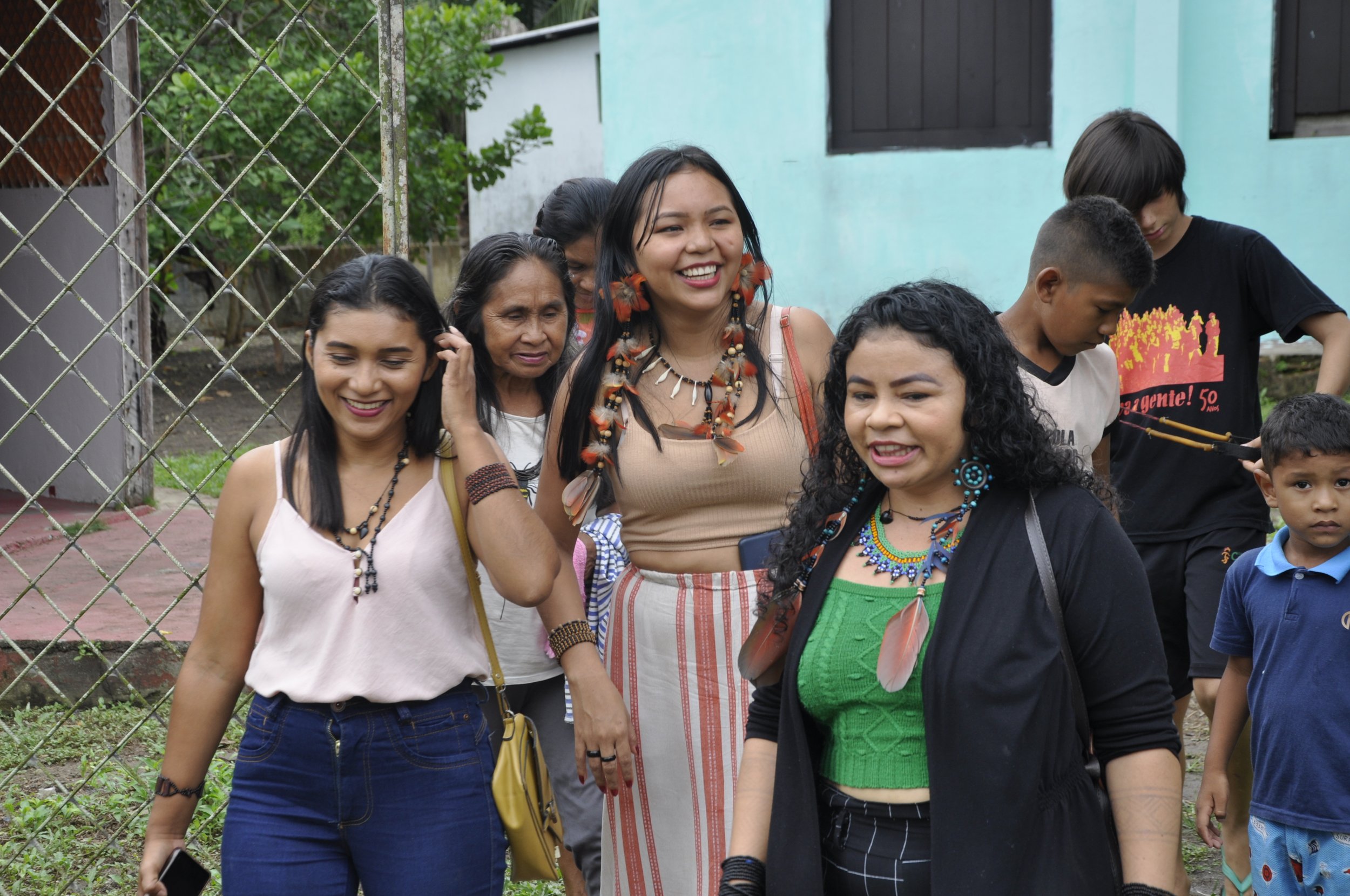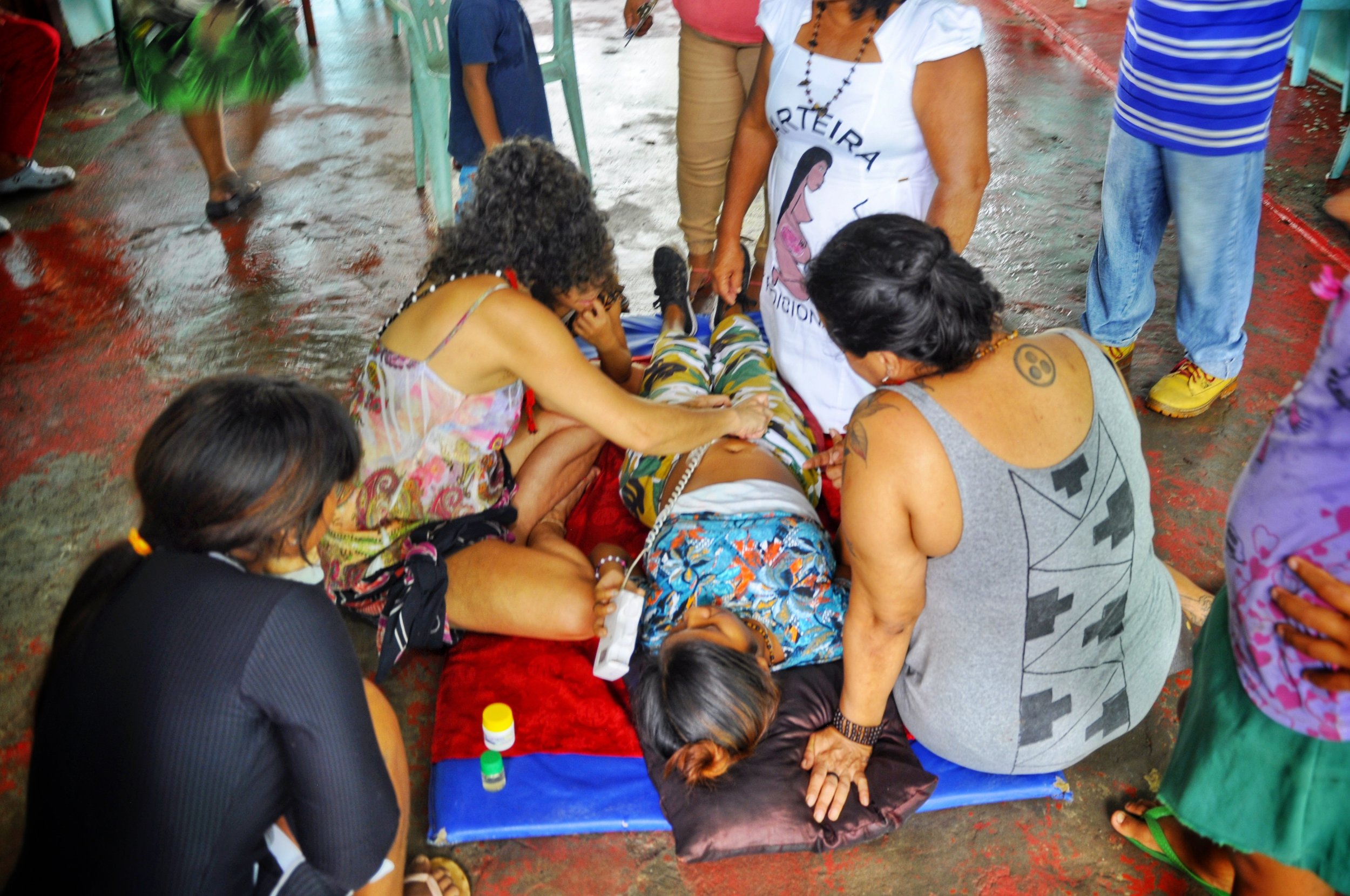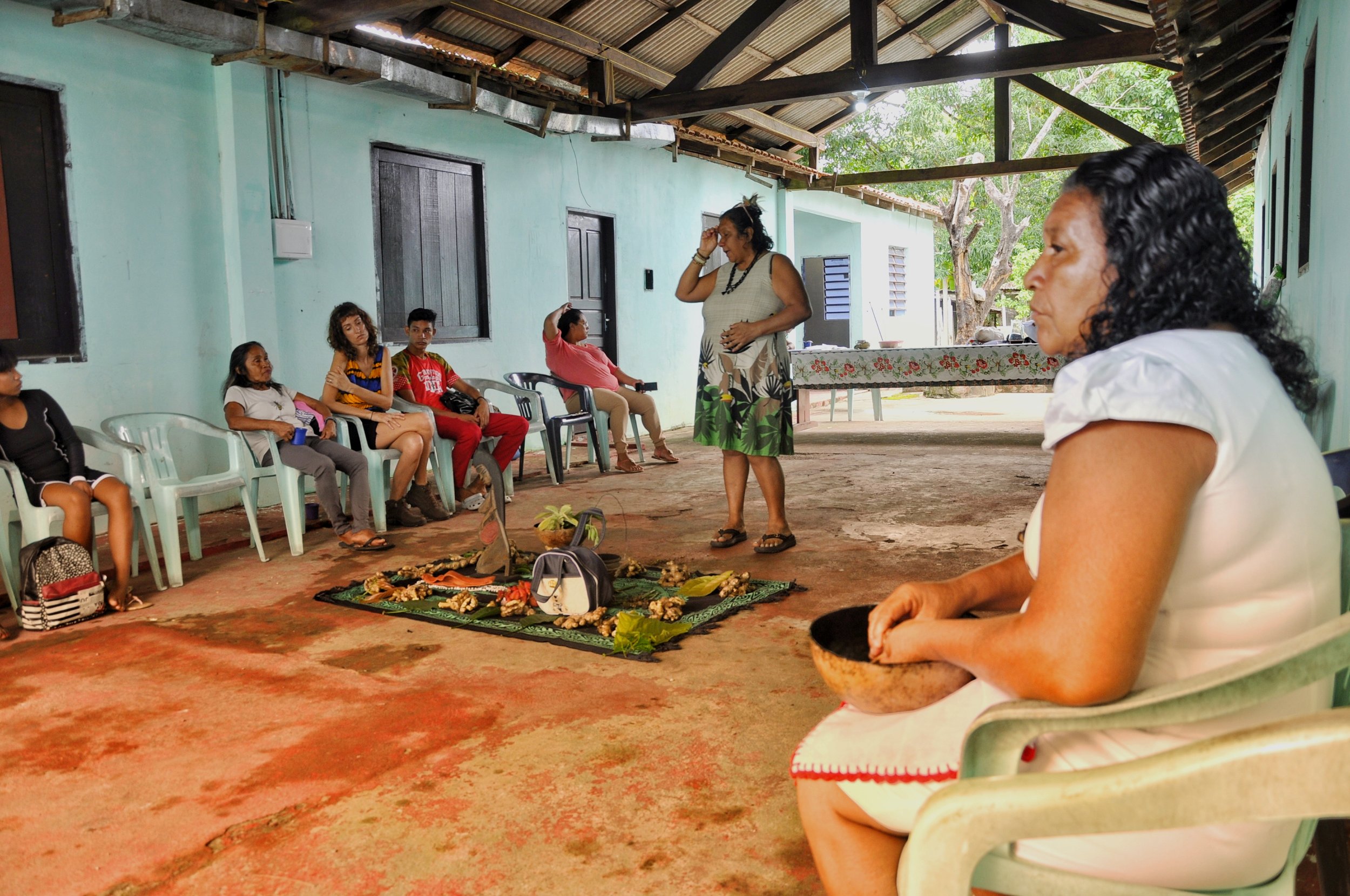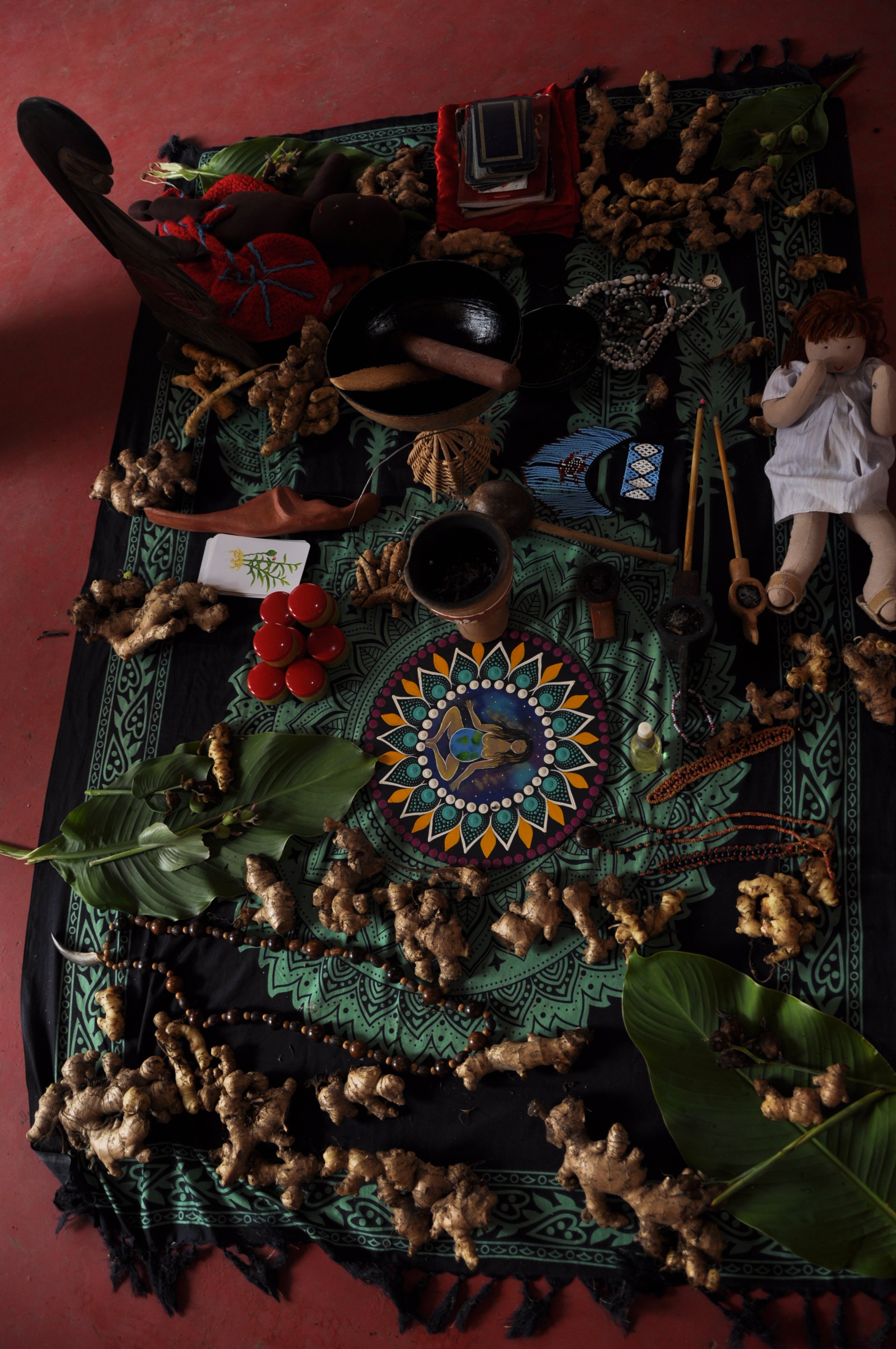Preserving Indigenous Midwifery Practices: The Birth of the Maués Midwives Association
Some attendees gathered for a group photo during the two day event held by the Maués Midwives Association.
In the heart of Maués, Brazil, a historic event unfolded on February 1st and 2nd as the Maués Midwives Association was officially established. This gathering stands as a testament to the unwavering dedication of women who have united to safeguard and promote indigenous midwifery practices. Supported by AMISM (Association of Indigenous Women Saterê Mawé) and Fundo Casa, the event served as a vibrant platform for cultural exchange and collaborative discussions, emphasizing the importance of preserving traditional knowledge and fostering community empowerment.
Livia Prestes, Amazon Regional Lead at Regenerosity, who was invited to the two day gathering which was supported by the Seed Brazil Flow Fund.
Q: Were those present already familiar with the knowledge being shared?
A: Not everybody. Many attendees didn't speak Portuguese. We discussed laws, rights, numbers, health, and many midwives (especially the elders who only speak the mother language) were attending to talk about pregnancy, medicinal herbs, sharing experience about women's and baby health, and how to participate and be recognized by regular medicine of the city, and how to work on Indigenous Areas, how to get indigenous woman and baby rights.
Q: The association extended an open invitation to male partners, children of Maués, indigenous and riverside residents, and individuals from institutional, health, and cultural sectors. Did a wide demographic attend the event?
A: Yes, there were people and families of all ages, from babies to the elderly, with most attendees being over 50 years old. In the presence list we had only 35 per day. But more attended, with approximately 60 people per day. Each day we began at roughly 6am and finished around 6pm.
Q: This gathering was their first recent event, are similar events planned for the future?
A: Sure. But first, there is an upcoming major election this year, which will guide the approach and direction for future events and gatherings.
Q: Is indigenous knowledge and midwifery approaches interwoven with conventional medical care throughout pregnancy?
A: Indigenous or riverside midwives must be respected for the work they do. They aim to exchange experience and work together with conventional medicine. The mothers reported a lot of obstetric violence with indigenous people who go to the hospital, and racism with traditional midwives who work in indigenous areas. There is the DSEI ( distrito sanitário especial indígena) indigenous medicine center. But it is administered by doctors, who at the moment, unfortunately, do not work together with them. This is their biggest struggle, to have respect as midwives, and for mothers to also be respected.
Regarding distance, the conventional hospital is far from the villages. There DSEI indigenous medicine centers are closer, but midwives and mothers do not feel understood or cared for yet. Each midwife who attended the gathering has delivered an average of 40 to 60 healthy children through natural birth. A lecture with FUNAI (Fundação Nacional dos Povos Indígenas ) on Maternal Death was given and was very interesting - actually, it was amazing. Conventional medicine should be applied in reciprocity with indigenous medicine and care.
Q: What are the association's plans for the future?
A: They use natural medicine and plan to create a garden with medicinal herbs for women and babies. Next, an election will be held on 24 April 2024. From there, they seek government recognition and aim to work together without marginalization.
The inaugural event of the Maués Midwives Association was not just a celebration but a commitment to preserving cultural heritage and empowering communities. From engaging activities like seed exchanges to discussions on indigenous rights and healthcare, the event highlighted the significance of indigenous midwifery practices. As the association looks towards the future, their determination to safeguard traditional knowledge and promote community well-being shines brightly, promising a culturally vibrant future for all.





